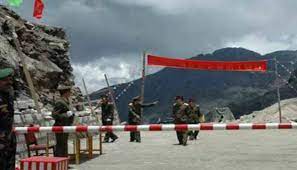By James Simons-
India has outrightly rejected Chinese attempts to rename places in what New Delhi regards as its eastern state of Arunachal Pradesh, which Beijing claims as part of its territory.
The latest tension was sparked on Sunday when China’s Ministry of Civil Affairs issued a statement in which it said it had “standardised” the names of 11 places, including five mountains, in what China calls its southern Tibet region.
The statement included a map that showed the 11 places renamed by China as being within “Zangnan”, or southern Tibet in Chinese, with Arunachal Pradesh included in southern Tibet and China’s border with India demarcated as just north of the Brahmaputra river.
India’s foreign ministry categorically rejected the move.
“We have seen such reports. This is not the first time China has made such an attempt,” Indian foreign ministry spokesperson Arindam Bagchi said on Twitter. “Arunachal Pradesh is, has been and will always be an integral and inalienable part of India.”
A spokesperson at the Chinese foreign ministry said the name changes were “completely within the scope of China’s sovereignty”.
“The southern Tibet region is Chinese territory,” the spokesperson, Mao Ning, told a regular media briefing in Beijing on Tuesday.
China and India share a disputed 3,440km (2,100 mile) long de facto border – called the Line of Actual Control, or LAC – which is poorly demarcated. The presence of rivers, lakes and snowcaps means the line can shift.
China continues to stake claim on the whole of Arunachal Pradesh, calling it “South Tibet”.
The soldiers on either side – representing two of the world’s largest armies – come face to face at many points, the last time being in December when Indian and Chinese troops clashed along the border in the town of Tawang.
The move from China is believed to be to reaffirm the country’s territorial sovereignty to the disputed region.
China’s renaming places is part of what is called lawfare, where countries seek to get the legal high ground to establish their claims. The attempt us an old feature for the Sino-Indian relationship China in the past renamed Barahoti Pass in Garhwal to Wu Je and also changed Demchok, which is in Ladakh and claimed by China to Parigas.
The naming and renaming of places in China is also known to be geared at leaving tell tale signs.




